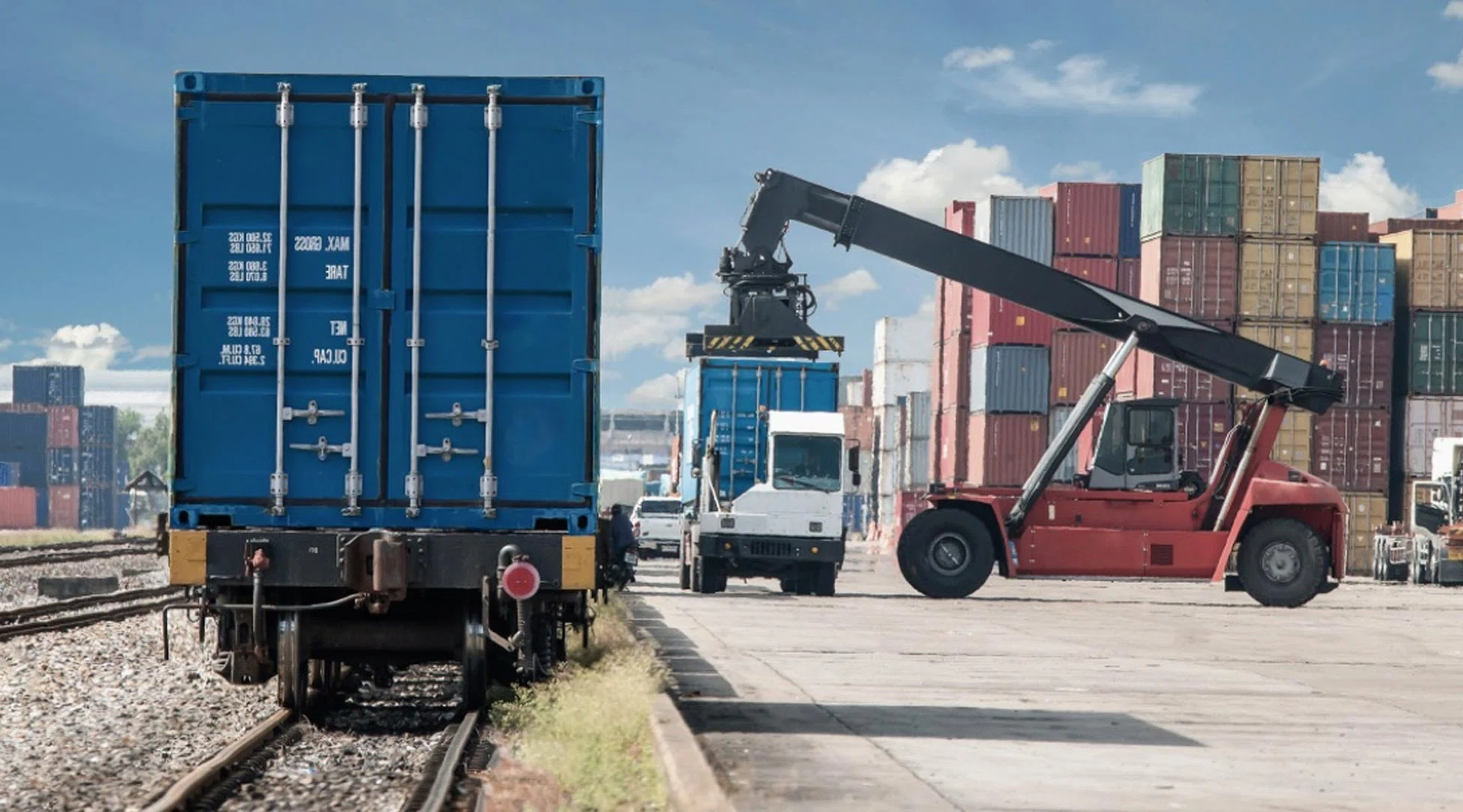In the world of trucking, the road taken can significantly influence profits, efficiency, and overall job satisfaction. But how does one distinguish the best path in a sea of seemingly endless options? The answer lies in strategic route planning, technological advancements, and a deep understanding of the industry's intricacies.
This guide delves into optimizing your trucking routes, ensuring every mile you cover is not only efficient but also maximizes your bottom line. Whether you're an experienced driver or just starting in the industry, these insights will pave the way for a smoother and more profitable journey ahead.
Find Loads for Trucks in Today's World
Over the years, the trucking landscape has seen a monumental shift. Gone are the days when truck drivers solely relied on word-of-mouth or a dispatcher's call to secure their next job. In today's fast-paced digital age, with an ever-growing demand for transportation solutions, it's paramount for drivers to proactively know how to source truck loads. Being well-versed in finding loads not only ensures a consistent income but also offers the flexibility to choose assignments that align with their preferences and schedules. This evolution in the industry makes it essential for truckers to acquaint themselves with various methods and strategies to source loads, ensuring they remain competitive and relevant in a changing marketplace.
1. Identifying Freight Brokers
Freight brokers are in the business of matching truck loads from shippers with truck drivers. The freight broker business model is straightforward. They develop relationships with as many shippers as possible within their chosen industrial sector. Then, they negotiate with shippers for the highest possible rate for a load. After finding a truck driver or carrier to move the freight at the lowest possible price, the broker takes a 25% to 35% cut of the profit.
Finding a freight broker is as easy as looking through a trade journal or searching for one on Google. However, finding a good freight broker with the best rates and the ability to keep you rolling requires some additional research. Here is a list of things to consider when looking for a freight broker:
- New freight brokers are a gamble for shippers and carriers. If you’re risk-averse, look for an established freight broker with a proven track record and good reviews. Also review their bond and credit history.
- Make sure the freight broker services the right sector for your trucking business. A freight broker specializing in bulk liquid chemicals is going to be of no use to you if you’re looking for dry van loads.
Freight brokering is as competitive as trucking, so shop around for the right audit and payment rates and routes for you.
2. Shippers & Dispatch Services
Networking directly with shippers or using dispatch services are valid ways to find truck loads. If you work directly with a shipper, you can earn a higher per-load revenue because you’re not giving up a percentage of the rate to a freight broker. However, these methods can usually be less than ideal, especially for newer carriers or owner-operators.
Working with shippers requires a working knowledge of the nation’s freight lanes, and you’ll be spending a lot of time on the phone or waiting on emails in a never-ending process of networking and negotiating.
You also may end up taking a load to an area (like Florida) where you lose time and money looking for another load or deadheading a long way to a busier freight hub. The result for your bottom line may be worse than going through a freight broker when you factor in the time lost and the empty miles.
On the other hand, you can reduce the time you spend networking and negotiating by using dispatch services to find truckloads. Some dispatch services offer additional help with billing, accounting, paperwork, and other back-office support. When it comes to your revenue, dispatch services charge fees for their services and take a percentage of the load revenue, putting them on par with freight brokers.
Working directly with shippers means you don’t need to pay a certain percentage of your profits to freight brokers, but it can also be more time-consuming and difficult, especially for newer carriers and owner-operators. Dispatch services can reduce that time and help with other administrative aspects of trucking, but they also charge fees and take a percentage of the revenue like freight brokers.

3. Load Boards

Load boards have been around for a long time. In the old days, you could find them on special television screens at most truck stops. They’ve kept up with the changes in technology and are now available online. Load boards are like classified ads for the trucking industry. Brokers and shippers post loads to the load board and include the pick-up and drop-off locations, rate, contact numbers, and other information pertinent to the load.
To use a load board, all you have to do is contact the entity posting a load; sometimes, you’ll have to negotiate the rate. Then, the broker or shipper will send you a carrier agreement to review and sign. After reviewing and signing the agreement, they’ll generally request additional paperwork from you, like your insurance and W-9 information. Once you send the paperwork back, they will respond with a load confirmation and pickup details.
With the CloudTrucks app, you have access to multiple load boards and over 200 brokers and shippers, making it easier to find and plan your loads.
Load boards make finding loads quick and easy but come with a mix of pros and cons to consider:

4. Become a Government Contractor
From the federal level to local and city governments, transportation is always needed and often outsourced. Private companies aren’t the only way to finding truck loads, so if you want to branch out a little, give government contracting a try. The only thing is that it requires a few extra steps at first so that you can register as a government contractor. You can also consider working with a company that already has a government contract for transportation to save yourself the need to fill out the paperwork for yourself.
Transportation is often outsourced for government work from the federal to the local and city levels. Becoming a government contractor requires a few extra steps to register and meet requirements.
5. Plan Your Loads Ahead of Time
To avoid operating your trucking business at a loss and to instead make your trucking business more profitable, pay close attention to the revenue on each load you transport. On your own, this involves performing a series of complex calculations covering items such as trip distance, deadhead miles, etc. You’ll generally have to work with one of the above-mentioned methods to plan your trips, backhauls, and stay on good truck lanes while trying to minimize empty miles and downtime. That’s a lot to juggle on your own. But there’s an alternative: CloudTrucks.
With the CloudTrucks app, you have access to multiple load boards and over 2000 brokers and shippers, making it easier to find and plan your loads. Plus, CloudTrucks collects data from millions of loads to show you a CT Estimate on every load. Use these price recommendations to help you negotiate so you always get the best rate. Head over to our Virtual Carrier page to learn more.
Planning your loads can help you avoid operating at a loss, but it can be a lot to manage on your own. With apps like CloudTrucks, though, you’ll have all the benefits and none of the headaches.

6. Networking & Relationship Building
When you’ve branched out on your own as an independent truck driver or owner-operator, your first few loads are a significant milestone. However, it’s only the beginning. Continued success means keeping your focus on developing your networking relationships with freight brokers, shippers, dispatchers, and other drivers.
A unique and celebrated aspect of the trucking industry is the community it embodies. The more you involve yourself in this community, the easier it will be for you to find loads, develop your network, earn more, and grow your business. Look for opportunities to get involved with the industry in other ways, like events, webinars, social media pages, and the CloudTrucks app.
Networking is an important way to find continued success in the trucking business. Spending time to find the opportunities for involving yourself in the trucking community will be an investment that pays off.
Tips on Finding Loads for Truck Drivers
Do your research
Figure out what locations work best for you and which fit your lifestyle best. Whether you want shorter routes so that you can spend more time with family or want to avoid the extreme winter weather in certain states, pick the locations that fit those preferences. Then, you can look for loads in those specific locations.
Don’t get too caught up in the pricing that is right in front of you. Make sure to take a closer look and look at the job from a big-picture perspective. You don’t want to get caught with a hassle just for higher pay if there are better routes and load characteristics that work best for you, even if it is a little lower paying.
Also, make sure to look into the reputation of freight brokers, if you’re using one. A good criterion is that they are fair and work with the customers you want.
Be active
Sell yourself! Be proactive in letting freight brokers, shippers, and load boards know that you are ready to work. If you have any special, unique, or valuable certifications, skills, or experiences, make sure to use that to your benefit.
Be flexible with your load transport types
Expand your reach by thinking about what other types of loads your truck can carry. For example, a refrigeration truck can also carry dry goods as long as there are no perishables included. Cross-cargo listing is a great way of finding more loads and having a better chance of always having work.












